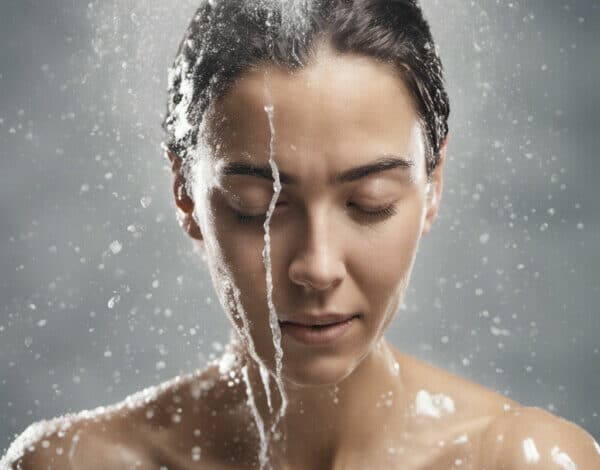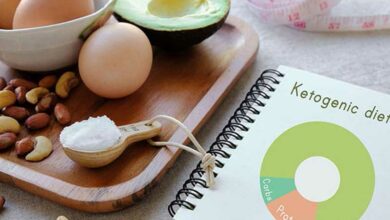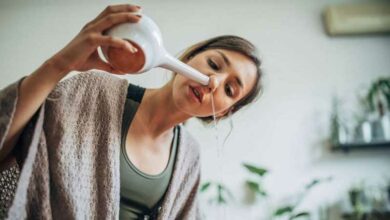Tips to Beat Dandruff After Frequent Hair Washing

Dealing with dandruff can be frustrating, especially when trying to keep your hair clean and healthy by frequent washing. But fear not! There are ways to beat dandruff even after frequent hair washing. Understanding the root causes of dandruff and how it is affected by frequent washing can help you tackle this pesky problem head-on.
Understanding dandruff and its causes
Dandruff is caused by a combination of factors including dry skin, yeast overgrowth, and certain skin conditions. It results in the flaking and itching of the scalp. To combat dandruff, it’s important to keep your scalp hydrated and nourished and address any underlying skin issues or medical conditions contributing to the problem.
The impact of frequent hair washing on dandruff
While washing your hair regularly is important for maintaining scalp health, excessive washing can worsen dandruff. Frequent washing can strip the scalp of its natural oils, leading to dryness and flakiness. To balance regular cleansing with dandruff control, use a gentle shampoo designed to combat dandruff. Also, consider incorporating a moisturizing conditioner and scalp treatment into your hair care routine to keep your scalp hydrated and reduce flaking.
Remember, consistency is key when it comes to managing dandruff. Stick to a regular hair care routine that includes gentle cleansing, moisturizing, and addressing underlying causes or conditions. You can beat dandruff and enjoy a healthy, dandruff-free scalp with patience and the right approach.
Best Practices for Washing Hair
The importance of using the right shampoo and conditioner
Using the right shampoo and conditioner is crucial in combating dandruff after frequent hair washing. Look for products แชมพูขจัดรังแค specifically formulated to treat dandruff and soothe the scalp. These products usually contain active ingredients like zinc pyrithione or ketoconazole, which help to control flaking and itching.
How long to leave the shampoo on for effective results
To get the most effective results, leaving the shampoo on the scalp for a few minutes before rinsing is recommended. This allows the active ingredients in the shampoo to penetrate the scalp and target the fungus or bacteria that causes dandruff.
The role of sunlight in combating dandruff
Exposing the scalp to sunlight can also help combat dandruff. Sunlight has natural antifungal and antibacterial properties that can reduce the growth of dandruff-causing microorganisms. However, protecting the skin and hair from excessive sun exposure is essential to prevent damage.
By following these tips and incorporating them into your hair-washing routine, you can effectively beat dandruff and maintain a healthy, flake-free scalp. Remember to consult with a dermatologist if the problem persists or gets worse.
Seeking Professional Help
Signs that indicate the need to consult a doctor
Persistent dandruff despite regular hair washing can be a frustrating problem. If you notice any of the following signs, it may be time to consult a dermatologist or trichologist:
- Severe itching and irritation on the scalp
- Redness or inflammation
- Excessive hair loss
- Scalp sores or lesions
- Dandruff that worsens or persists despite using over-the-counter treatments
Available treatment options and specialized shampoos
There are different treatments for dandruff that one can choose from.A healthcare professional may recommend:
- Shampoos that combat fungal infections and contain ingredients like ketoconazole or zinc pyrithione.
- Prescription-strength topical medications
- Steroid creams or lotions for severe cases
- Phototherapy using ultraviolet (UV) light
It’s important to follow the advice of a healthcare professional to determine the most suitable treatment for your specific condition.
Natural remedies that may aid in reducing dandruff
While professional help is crucial for severe dandruff, some natural remedies may provide temporary relief. These include:
- Apple cider vinegar rinse
- Tea tree oil
- Aloe vera gel
- Coconut oil
- Omega-3 fatty acids from sources like fish or flaxseed
Remember, natural remedies may not work for everyone, and it’s best to consult a professional for proper diagnosis and treatment of persistent dandruff.
Common Ingredients in Dandruff Shampoos
Their role in cleansing and treating dandruff
Dandruff can be a pesky problem, especially if you wash your hair frequently. However, using the right dandruff shampoo can help you beat those flakes. Here are some common ingredients found in dandruff shampoos and their role in cleansing and treating dandruff:
- Pyrithione zinc: This ingredient helps to control the fungus that can cause dandruff and provides effective cleansing.
- Selenium sulfide: Selenium sulfide slows down the growth of cells on the scalp, reducing flakiness and itching.
- Ketoconazole: Ketoconazole is an antifungal ingredient that targets the root cause of dandruff by eliminating the fungus responsible for its formation.
Potential side effects and precautions to consider
While dandruff shampoos can be effective, it’s essential to be aware of possible side effects and take necessary precautions:
- Dryness and irritation: Some ingredients, like selenium sulfide and ketoconazole, may cause dryness or irritation. If you experience any discomfort, consider using a milder formulation or consulting a dermatologist.
- Skin sensitivity: Certain ingredients may irritate your scalp if you have sensitive skin. Look for shampoos for sensitive skin or consult a dermatologist for suitable alternatives.
- Frequency of use: Follow the instructions on the shampoo bottle regarding how often to use it. Overuse can lead to scalp dryness or other adverse effects.
By understanding the role of common ingredients in dandruff shampoos and taking necessary precautions, you can effectively manage dandruff even after frequent hair washing.
Alternative Natural Treatments
The effectiveness of aloe vera in alleviating itchiness and scaliness
If you’re battling dandruff after frequent hair washing, aloe vera might be your secret weapon. Known for its soothing properties, aloe vera can help alleviate itchiness and scaliness on the scalp. Apply pure aloe vera gel directly to your scalp and leave it on for a few minutes before rinsing. Regular use can provide relief and promote a healthier scalp.
Tea tree oil is a potential dandruff-fighting option
Tea tree oil has been revered for its antifungal and antimicrobial properties, making it a potential solution for dandruff. Mix a few drops of tea tree oil with your shampoo and massage it into your scalp. Leave it on for a couple of minutes before rinsing. Tea tree oil can help reduce flakiness and soothe an itchy scalp, providing a natural alternative to combat dandruff.
The benefits of lemongrass shampoo in combating fungi
Lemongrass shampoo is gaining popularity for its ability to combat fungi, which can contribute to dandruff. Lemongrass has natural antifungal properties that can help regulate the scalp’s oil production and reduce flakiness. Use a lemongrass shampoo regularly to cleanse your scalp and promote a healthier environment, potentially reducing dandruff caused by fungal overgrowth.
Remember, it’s important to consult with a healthcare professional or dermatologist if you have persistent dandruff or if your symptoms worsen. These alternative natural treatments can complement your regular hair care routine and help you beat dandruff after frequent hair washing.
Proper Application Techniques
Following the instructions on the shampoo label
When dealing with dandruff after frequent hair washing, following the shampoo label’s instructions is crucial. Each shampoo has guidelines on how long to leave it in, how much to use, and how often to wash your hair. By following these instructions, you can ensure that you use the shampoo correctly and get the maximum benefit.
Tips for massaging the scalp for better results
Properly massaging the scalp while shampooing can help improve the effectiveness of the treatment for dandruff. Use your fingertips to massage the scalp in circular motions gently. This helps to loosen dead skin cells and increase blood flow to the scalp, promoting a healthier environment. Pay special attention to areas with excessive dandruff. Remember to be gentle and avoid scratching your scalp, which can cause further irritation.
Recognition and Prevention
Identifying signs of dandruff, such as flakes and itchiness
Dealing with dandruff after frequent hair washing can be frustrating, but recognizing the signs can help you take action sooner rather than later. Look for white flakes on your scalp and shoulders, accompanied by an itchy and irritated scalp. If you notice these signs, you’re likely dealing with dandruff.
Practical tips to prevent and manage dandruff in the long term
To combat dandruff and maintain a healthy scalp, here are some helpful tips:
- Frequent but gentle washing: Wash your hair regularly with a gentle shampoo for dandruff-prone scalps. Avoid harsh shampoos that may strip away natural oils and cause further irritation.
- Maintaining a balanced diet: Good nutrition is vital to overall scalp health. Include foods rich in zinc, omega-3 fatty acids, and vitamins A, E, and D to promote a healthy scalp.
- Manage stress levels: High-stress levels can trigger dandruff or worsen it. Engage in stress-reducing activities like exercise, meditation, or hobbies to avoid stress.
- Avoid excessive heat styling: Frequent use of heat styling tools can dry out your scalp and worsen dandruff. Use heat protectants and minimize heat styling to keep your scalp healthy.
- Try natural remedies: Some natural ingredients like tea tree oil, aloe vera, apple cider vinegar, and coconut oil have been found to have anti-dandruff properties. Experiment with these remedies to see what works best for you.
Following these tips and maintaining a consistent hair care routine, you can successfully beat dandruff after frequent hair washing and enjoy a healthy, flake-free scalp.
Conclusion
Summing up the key points discussed
Managing dandruff after frequent hair washing can be challenging, but with the right approach, keeping those pesky flakes at bay is possible.Remember to:
- Use an anti-dandruff shampoo: Look for shampoos containing ingredients like ketoconazole, selenium sulfide, or zinc pyrithione to combat dandruff effectively.
- Moisturize your scalp: Dryness can contribute to dandruff, so moisturize your scalp regularly using natural oils like coconut or jojoba oil.
- Avoid excessive heat: Heat styling tools and hot water can strip the scalp of its natural oils, leading to dryness and flaking. Minimize their use to prevent dandruff.
Encouraging readers to find the right approach to beat dandruff after frequent hair washing
Don’t get discouraged if your current hair care routine isn’t working well for your dandruff-prone scalp. Finding the right combination of products and practices that work for you may take trial and error. Remember to consult with a dermatologist if your dandruff persists despite your efforts. You can overcome dandruff with patience and the right approach and enjoy a healthy, flake-free scalp.




